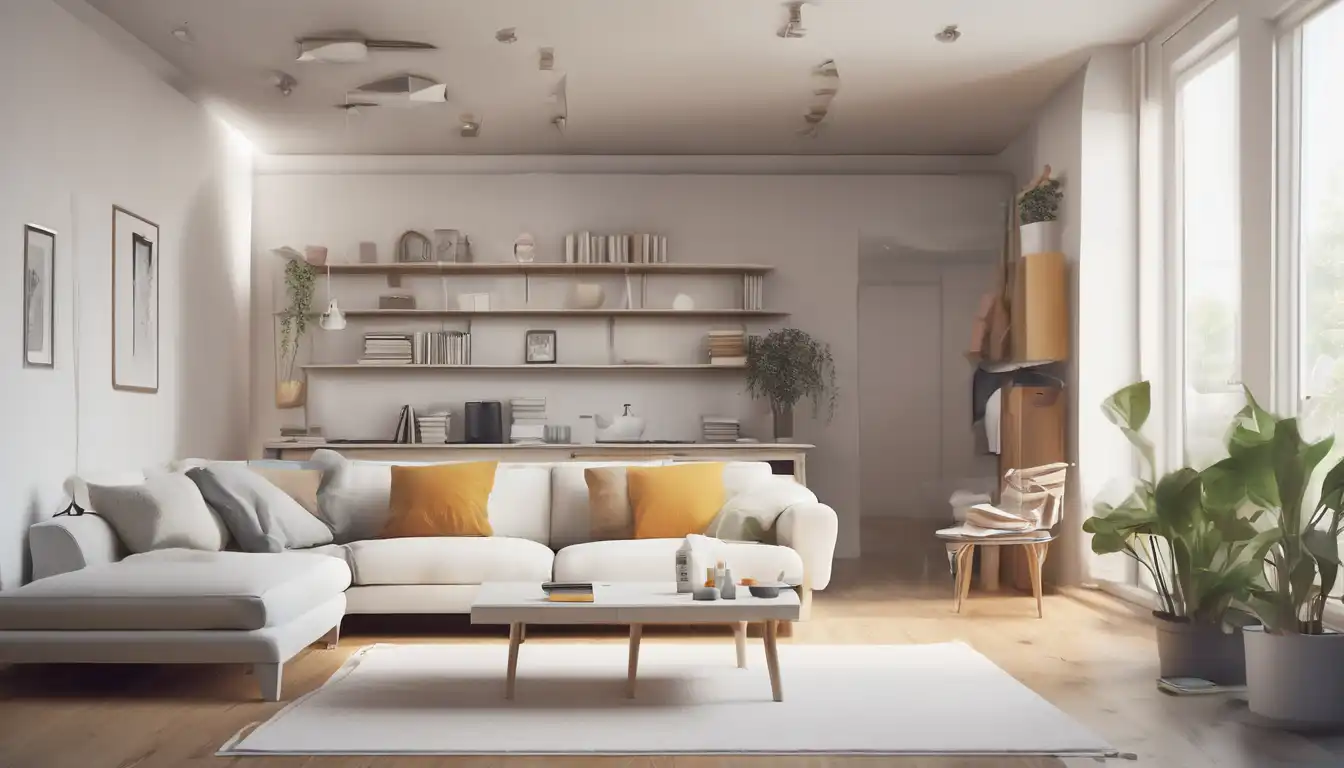Why Minimalist Living Transforms Your Life
Minimalist living isn't just about having fewer possessions—it's a mindset shift that creates space for what truly matters. By embracing minimalism, you're choosing intentionality over accumulation, freedom over burden, and clarity over chaos. This approach to life helps reduce stress, save money, and create more time for meaningful experiences.
Many people discover that minimalist principles apply not just to physical spaces but to digital environments, schedules, and even relationships. The journey toward a clutter-free life begins with understanding that less can indeed be more when it comes to happiness and fulfillment.
Start with the Right Mindset
Before you begin decluttering, it's crucial to adopt the proper minimalist mindset. Minimalism isn't about deprivation or living with nothing—it's about surrounding yourself only with items that add value to your life. Ask yourself: "Does this item serve a purpose or bring me joy?" If the answer is no, it might be time to let it go.
Remember that minimalism looks different for everyone. Your version of a minimalist lifestyle should align with your values and needs. Some people thrive with very few possessions, while others prefer a more moderate approach. The key is intentionality in your choices.
Practical Steps to Begin Your Minimalist Journey
Starting your minimalist transformation can feel overwhelming, but breaking it down into manageable steps makes the process achievable:
- Set clear goals: Define what you want to achieve with minimalist living
- Start small: Begin with one drawer or shelf rather than an entire room
- Use the one-in-one-out rule: For every new item brought in, remove one existing item
- Schedule regular decluttering sessions: Make minimalism an ongoing practice
The Room-by-Room Decluttering Method
Taking a systematic approach to decluttering ensures you cover all areas of your home without feeling overwhelmed. Here's how to tackle each space effectively:
Living Room Minimalism
The living room should be a space for relaxation and connection. Remove excess furniture, decorative items, and entertainment clutter. Keep only what serves a purpose or brings genuine joy. Consider multi-functional furniture that serves multiple purposes while taking up less space.
Kitchen Simplification
Kitchens often accumulate duplicate utensils, expired food, and single-use gadgets. Keep only the tools you regularly use and donate the rest. Organize your pantry with clear containers and implement a first-in-first-out system for food items. This approach not only reduces clutter but makes meal preparation more efficient.
Bedroom Sanctuary
Your bedroom should be a peaceful retreat. Remove clothing you haven't worn in a year, excess bedding, and unnecessary furniture. Create a capsule wardrobe with versatile pieces that mix and match easily. This reduces decision fatigue and makes getting dressed simpler each morning.
Digital Decluttering Strategies
Minimalism extends beyond physical spaces to your digital life. Digital clutter can be just as stressful as physical clutter. Start by organizing your files, deleting unused apps, and unsubscribing from email lists that no longer serve you. Create a simple folder structure for important documents and regularly backup essential files.
Consider implementing digital minimalism practices like setting screen time limits, turning off non-essential notifications, and designating tech-free times during your day. These habits help create mental space and reduce the constant stimulation of modern technology.
Maintaining Your Minimalist Lifestyle
Sustaining a clutter-free life requires ongoing attention and good habits. Here are key maintenance strategies:
- Regular check-ins: Schedule monthly reviews of your spaces
- Mindful shopping: Ask "Do I really need this?" before purchases
- Quality over quantity: Invest in durable items that last longer
- Digital cleanup days: Set aside time for digital organization
The Benefits You'll Experience
As you embrace minimalist living, you'll notice significant improvements in multiple areas of your life. Reduced stress levels come from having less to manage and maintain. Financial benefits accumulate as you make more intentional purchases and avoid impulse buying. Time savings become apparent with less cleaning, organizing, and searching for misplaced items.
Many minimalists report improved mental clarity and focus, as visual distractions decrease. Relationships often improve when you have more time and energy to invest in meaningful connections. The environmental impact of consuming less cannot be overstated—minimalism naturally leads to a smaller carbon footprint.
Overcoming Common Challenges
Transitioning to minimalist living isn't always easy. You might face resistance from family members or struggle with sentimental items. Remember that progress matters more than perfection. Be patient with yourself and celebrate small victories along the way.
If you feel stuck, consider working with a minimalist buddy or joining online communities for support. Seeing others' success stories can provide motivation and fresh ideas for your own journey. Remember that minimalism is a personal path—what works for others might need adjustment for your unique situation.
Minimalism Beyond Possessions
True minimalist living extends to how you manage your time, energy, and commitments. Learn to say no to activities that don't align with your priorities. Create margin in your schedule for spontaneity and rest. Practice mindfulness to become more present in your daily life.
Consider applying minimalist principles to your finances by simplifying accounts and automating bill payments. Streamline your self-care routine by focusing on practices that truly benefit you. The goal is to remove excess in all areas, creating space for what genuinely matters.
Minimalist living offers a path to greater freedom, clarity, and contentment. By intentionally choosing what to keep in your life—whether possessions, commitments, or habits—you create room for more meaningful experiences. Start small, be consistent, and remember that the journey toward a clutter-free life is ongoing and deeply rewarding.
